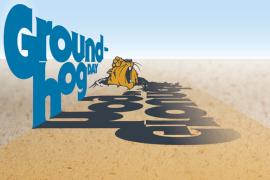Bobby arrived later than all the other campers, a habit I would soon come to expect. He waited awkwardly in the rec hall doorway. He clutched a black plastic bag of clothing and toiletries, and in his eyes he carried a dim light of glazed-over confusion.
I introduced myself.
"Hi, Mr. Ben," he said in a lilty, sing-songy pitch, dragging out each syllable.
 We had to drop his things off at Wisdom, my cabin. As we walked, the soles of his velcro sandals kept getting caught against the ground, forcing him to trip and stumble. Bobby sat down on the floor and tossed his underwear and socks all over the place. Before leaving to rejoin the others, he struggled to find a clean shirt, so I helped him; he struggled to get his shoes on, so I assisted him; he struggled to open the screen door and navigate the stairs, so I guided him; he struggled to remember where we were going, so I reminded him.
We had to drop his things off at Wisdom, my cabin. As we walked, the soles of his velcro sandals kept getting caught against the ground, forcing him to trip and stumble. Bobby sat down on the floor and tossed his underwear and socks all over the place. Before leaving to rejoin the others, he struggled to find a clean shirt, so I helped him; he struggled to get his shoes on, so I assisted him; he struggled to open the screen door and navigate the stairs, so I guided him; he struggled to remember where we were going, so I reminded him.
Spending the summer in the Wisconsin Northwoods in a stifling cabin with a dozen teenage boys isn't an ideal summer vacation to most people. Between the mosquitoes, the crippling heat, and the reality that civilization is a forty-five-minute drive away, camp is for the bold. Maintaining a peaceful, friendly cabin environment between Bobby and the other boys, all of whom were smarter, stronger, faster, bigger, and more independent than Bobby, was an added challenge. This would be my test for three weeks.
I suspected that Bobby suffered from fetal alcohol syndrome. His mental, physical, and emotional development was stunted. And even though I knew he wasn't to blame, I soon noticed my frustration and bitterness about having to help him with things that came naturally to other campers. I caught myself in that moment and realized from then on that I wanted to be Bobby's supporter.
It took time, but we gradually became more comfortable. He would hide under my bed and try to scare me; he made it a daily tradition to read the weather report to the whole camp; and he nursed a budding crush on the camp director.
As Bobby's chapter at camp was nearing a close, we had one more obstacle to overcome: a three-mile hike up a rocky hillside under the hot July sun. An hour in, he had already run out of water and soon fell behind the group. He was concerned about taking his medicine and wanted to turn back. But I gave him my water bottle, reassured him that he could do it, and we pushed on.
After that, Bobby was a joy and began entertaining the other campers with his intense version of "peek-a-boo." I will forever remember one image from that day: Bobby soldiering on and wearing my hat as we walked through the Wisconsin backwoods. Falling asleep that night, I felt a warm feeling of satisfaction.
On his final day of camp, Bobby and I said goodbye on the porch. I met his father, handed over his belongings, and stood somberly. He squeezed me goodbye and I wondered what he would do for the rest of the day; I was invested in his life.
Counseling Bobby was something I first viewed as a burden, but eventually embraced as invaluable. He allowed me to reflect on the blessings I've been lucky to enjoy.
He instilled within me the timeless adage, "It takes a village to raise a child." No matter how smart, successful, or awe-inspiring one might be, anyone can feel alone, weak, or vulnerable. Bobby taught me that challenges come in many varieties and that humanity is at its best when we bring our unique strengths to the community.
Most of all, Bobby made me a better person. By the end of his three weeks, all of my negativity had been replaced by patience and compassion. He reminded me that everyone needs help and that it is crucial to reward others for what they do well, not judge them for what they do poorly. Though he may forget my short-term lessons and only remember having fun at camp, I will always cherish the lessons he unknowingly taught me.
Ben Hulac began going to camp at age thirteen. He was a counselor for three summers. Contact the author at [email protected].
Photo courtesy of Kingswood Camp for Boys, Piermont, New Hampshire.

